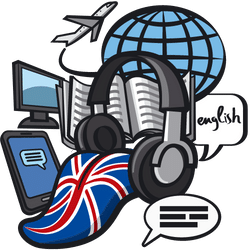There are many ways that people can go about learning how to read English. Some people may learn better through hearing and speaking, while others may learn better through seeing and doing. There are many different methods and techniques that can be used in order to help someone learn how to read English.
One way to learn how to read English is by using phonics. Phonics is a method that helps students to connect the letters of the alphabet with the sounds that they make. This is a very common method that is used in schools throughout the United States. There are many different phonics programs that are available, and many parents choose to use phonics programs in order to help their children learn to read.
Another way to learn how to read English is by using a program or a website that is specifically designed for learning to read. These programs and websites usually have a variety of activities that can help students to learn how to read. They may also have games and quizzes that can help students to test their knowledge.
Some people may also want to use a tutor in order to learn to read English. A tutor can help students to learn the basics of reading, and can also help students to improve their reading skills.
No matter how someone chooses to learn to read English, it is important to be patient and to take things one step at a time. English is not a difficult language to learn, but it can be difficult to read if a person is not familiar with the alphabet and the sounds that the letters make. With practice, anyone can learn to read English.
Importance of Learning English Reading Skills
Reading is one of the most important skills that a person can learn. It allows people to obtain information and learn new things. In addition, reading helps people to improve their vocabulary and writing skills. Learning to read in English is important for people who want to improve their English skills.
There are many ways that people can learn to read in English. One way is to read English books. Reading books can help people to improve their vocabulary and reading skills. In addition, reading books can help people to learn about new topics and cultures.
Another way to learn to read in English is to read articles and news stories. Reading articles and news stories can help people to improve their English reading skills. In addition, reading articles and news stories can help people to learn about new topics and current events.
Finally, people can learn to read in English by using English language learning websites and apps. Using English language learning websites and apps can help people to improve their English reading skills. In addition, using English language learning websites and apps can help people to learn about new topics and vocabulary words.
Setting Goals and Objectives for English Reading
Reading English can be a daunting task for nonnative speakers, but with the right set of goals and objectives, it can be a fun and rewarding experience. Here are a few tips on how to set goals and objectives for improving your English reading skills.
1) Set realistic goals. It’s important to set goals that are achievable and challenging, but not impossible. If you’re a beginner, don’t set your goal as reading an English novel. Start with something smaller, such as reading an article or a short story.
2) Make a plan. Once you have set your goals, it’s important to make a plan on how to achieve them. Break down your goals into smaller steps and set a deadline for each step. This will help keep you motivated and on track.
3) Find a reading partner. A great way to improve your English reading skills is to find a friend or classmate who is also interested in improving their reading skills. You can help each other out by reading aloud, discussing the text, and practicing vocabulary.
4) Read regularly. The best way to improve your reading skills is to read regularly. Set aside a certain amount of time each day or week to read in English. This will help you get into a routine and improve your fluency.
5) Use a dictionary. A great way to improve your vocabulary and understanding of English texts is to use a dictionary. When you come across a word you don’t know, look it up and learn its definition.
6) Practice comprehension. A big part of reading English is being able to understand what you are reading. To improve your comprehension, try reading texts that are at your level and then answering comprehension questions about the text.
7) Take a quiz. A fun way to test your English reading skills is to take a quiz. There are a number of online quizzes that can test your reading comprehension, vocabulary, and grammar.
8) Read in different genres. To improve your overall English reading skills, try reading texts in different genres. This will help you become familiar with different writing styles and improve your comprehension.
9) Read aloud. One of the best ways to improve your English reading skills is to read aloud. Not only will this help improve your pronunciation and fluency, but it will also help you become more familiar with the text.
10) Have fun! The best way to learn anything is to have fun. Find reading activities that you enjoy and stick with them. You’ll be surprised at how much progress you can make in a short amount of time.
Creating a Reading Plan for English Language Learners
There is no one-size-fits-all approach to learning to read English, but there are some general tips that can help. The first step is to develop a reading plan tailored to your own needs and abilities.
One way to do this is to start by focusing on reading familiar texts. This could be something like a children’s book, a magazine article about a topic you’re interested in, or a blog post about a hobby or interest you have.
When you’re reading something you’re familiar with, take the time to read it slowly and carefully, and to focus on understanding the meaning of the text. Don’t try to read every word – focus on the main points.
If you come across a word you don’t know, try to work out its meaning from the context of the sentence. You can also use a dictionary to look up the word.
Once you’re comfortable with reading familiar texts, you can start to tackle more challenging material. This could be a novel, an essay, or a news article.
Again, take your time and focus on understanding the text. If you don’t understand something, don’t be afraid to ask someone for help. There are plenty of English language learners out there who are happy to help out!
Finally, don’t forget to practice your reading skills regularly. This could mean reading a chapter of a book every day, or reading a news article every morning. The more you read, the better you’ll become at it.
Remember, the most important thing is to be patient and to take things at your own pace. There’s no rush – the more you read, the better you’ll become at it.
Developing Vocabulary and Language Skills
There are a number of important things to keep in mind when learning to read English. The first step is to develop a strong vocabulary. This can be done through reading extensively, paying attention to the words that are used in context, and practicing using new words in conversation and writing.
Another key element of reading English is to develop strong language skills. This includes understanding grammar rules and being able to apply them correctly. It also involves learning how to use idiomatic expressions and other expressions that are unique to the English language.
Finally, it is important to practice reading extensively. This can be done by reading books, articles, and other materials in English. It can also be done by listening to English-language podcasts, watching English-language movies and TV shows, and participating in online English-language forums and discussions.
Practicing Reading Comprehension Strategies
There are a variety of reading comprehension strategies that can help students become better readers. Some of these strategies are:
1. predicting what will happen next in a story
2. making connections between what is read and what they already know
3. summarizing what has been read
4. questioning what they read
5. identifying the main idea and supporting details
6. visualizing what is happening in a story
7. reading out loud
8. reading more than one version of the same story
9. reading books that are just above or below their reading level
10. keeping a reading journal
Utilizing Reading Resources and Materials
There are a variety of ways that people learn to read English, and the best way for each person to learn may be different. However, there are some general tips that can be shared for how to best utilize reading resources and materials to learn to read English.
One important tip is to start with material that is at an appropriate level for the reader. If the material is too difficult, it will be difficult to understand and the reader may become discouraged. If the material is too easy, the reader may become bored. A good way to find material that is at the right level is to use a reading assessment or to ask a teacher or tutor for help in finding appropriate materials.
Another important tip is to read often. The more a person reads, the better they will become at reading. It is also important to read material that is interesting to the reader. If the reader is not interested in the material, they will not be motivated to read it.
In order to improve reading skills, it is also important to practice reading out loud. This will help the reader to become more comfortable with the act of reading and will help to improve pronunciation and fluency.
Finally, it is important to use reading resources and materials regularly. This may include reading books, magazines, newspapers, or online articles. The more variety the reader has in their reading material, the better.
Incorporating Reading into Everyday Life
There are a number of different ways that one can go about incorporating reading into their everyday life. The first step is to find a reading material that is interesting and engaging for the reader. It can be a book, magazine, online article, or any other form of reading material. Once the reader has found a material that they are interested in, they should try to read for at least 10 minutes every day. This can be done in one sitting or spread out throughout the day.
In addition to reading for pleasure, it is also important to read for educational purposes. Reading can help improve vocabulary, comprehension, and reading skills. One way to do this is to read aloud to someone else, such as a child or spouse. This not only helps the reader to better understand the material, but it also helps to improve communication and speaking skills.
Finally, it is important to make sure that reading is a part of every day life. This means that the reader should always have a book or some other reading material with them, whether they are waiting in line, on the bus, or relaxing at home. By making reading a part of everyday life, the reader can improve their reading skills and knowledge while also enjoying the process.
Monitoring Progress and Celebrating Achievements
There is no one method for learning to read English. Some students may learn best through stories, others through phonics, and still others through grammar-based instruction. However, there are some general tips that can help all students monitor their progress and celebrate their achievements.
One way to monitor progress is to keep track of the number of words a student can read independently. At the beginning of the school year, set a goal for the number of words the student should be able to read by the end of the year. Then, periodically test the student on this number of words. If the student is able to read more words than the goal, celebrate the achievement!
Another way to monitor progress is to keep track of the student’s reading level. A reading level is a measure of how difficult a text is for a student to read. A student’s reading level can be determined by using a reading test or by using a reading level chart. Once a student’s reading level is determined, the student can be assigned texts at his or her reading level. Doing this will help the student to constantly be challenged and make progress.
Finally, celebrating achievements does not have to be limited to reading. Students can celebrate achievements in any subject. For example, if a student completes a math worksheet with no mistakes, celebrate the achievement by giving the student a sticker or by telling the student how proud you are of him or her. A little recognition can go a long way in motivating students to continue working hard.



